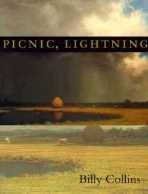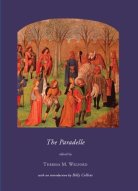I’ll be attending the monthly poetry workshop sponsored by RHINO tomorrow in Evanston, which I’ve missed since last fall due to the demands of my teaching job. I’m having mixed feelings, though, because the session will focus on the villanelle, the fixed poetic form that I’ve never tried and find somewhat intimidating. The most well-known villanelle today is Welch poet Dylan Thomas’ lovely 1951 poem, “Do Not Go Gentle Into That Good Night,” which begins:
—–
Do not go gentle into that good night,
Old age should burn and rave at close of day;
Rage, rage against the dying of the light.
Though wise men at their end know dark is right,
Because their words had forked no lightning they
Do not go gentle into that good night.
—–
The villanelle was created as a fixed form in France in the 19th century and adopted into English a few years later. It consists of six stanzas and requires the poet to repeat particular lines in particular places, constraining poetic freedom. Like sonnets, villanelles are hard to pull off without sounding childish or overly simple—yet they can be beautiful in the hands of musical poets like Thomas.
—–
Now — Here’s the hijinks part:
 While I’m not a huge fan of the villanelle, one of my favorite poetry stories involves this form . . . sort of. Billy Collins, the beloved American poet, is a free verse disciple who loathes the fixed form and openly mocks the notion of using random constraints in poetry. In 1997, Collins pulled off one of the cleverest hoaxes in the contemporary literary world by writing a poem he called a “paradelle.” He published his poem, “Paradelle for Susan,” in his brilliant collection, Picnic, Lightning, and included this footnote:
While I’m not a huge fan of the villanelle, one of my favorite poetry stories involves this form . . . sort of. Billy Collins, the beloved American poet, is a free verse disciple who loathes the fixed form and openly mocks the notion of using random constraints in poetry. In 1997, Collins pulled off one of the cleverest hoaxes in the contemporary literary world by writing a poem he called a “paradelle.” He published his poem, “Paradelle for Susan,” in his brilliant collection, Picnic, Lightning, and included this footnote:
“The paradelle is one of the more demanding French fixed forms, first appearing in the langue d’oc love poetry of the eleventh century. It is a poem of four six-line stanzas in which the first and second lines, as well as the third and fourth lines of the first three stanzas, must be identical. The fifth and sixth lines, which traditionally resolve these stanzas, must use all the words from the preceding lines and only those words. Similarly, the final stanza must use every word from all the preceding stanzas and only these words.”
BUT HE HAD MADE THE WHOLE THING UP.
Here is the opening stanza of “Paradelle for Susan:”
—–
I remember the quick, nervous bird of your love.
I remember the quick, nervous bird of your love.
Always perched on the thinnest, highest branch.
Always perched on the thinnest, highest branch.
Thinnest love, remember the quick branch.
Always nervous, I perched on your highest bird the.
—–
Amazingly, readers took the bait and believed this to be an actual form—and the poem to be serious. Collins could only laugh at the critics’ scathing commentary of this ridiculously clunky poem, and when word got out about the ruse, critics proceeded to attack again, feeling foolish for having been duped. But Collins didn’t stop laughing.
 Even funnier, the paradelle had wings and became a fixed form in its own right. Poets around the world began writing them, and Red Hen Press actually published a whole book of them in 2005.
Even funnier, the paradelle had wings and became a fixed form in its own right. Poets around the world began writing them, and Red Hen Press actually published a whole book of them in 2005.
Here is the one and only paradelle I’ve written, strictly following Collins’ rules. Like other poets who’ve tried the form, I felt challenged to try to create something meaningful even while playing along with the joke.
Should I end up creating a worthwhile villanelle after tomorrow’s RHINO session, I’ll post it some time, too.
—–
A “Paradelle” for Ramon, Age 17
—–
The boy changes into a man.
The boy changes into a man.
You stand tall and claim the earth.
You stand tall and claim the earth.
Stand a man into the tall earth,
and claim the boy changes you.
—–
I know a mother’s love glows.
I know a mother’s love glows.
Remembering each hour, we smile and weep.
Remembering each hour, we smile and weep.
Each mother’s remembering a smile glows,
Hour I know and weep we love.
—–
In old age you will hold my heart.
In old age you will hold my heart.
As a spirit, I will bring comfort.
As a spirit, I will bring comfort.
Hold my spirit as old comfort will,
In you will bring a heart I age.
—–
A comfort I will know in age.
We weep a tall heart into remembering.
The mother’s hour you claim as love,
And the changes you hold will stand.
Each boy and man bring a smile.
Old earth, my spirit glows.
_____


Leave a comment